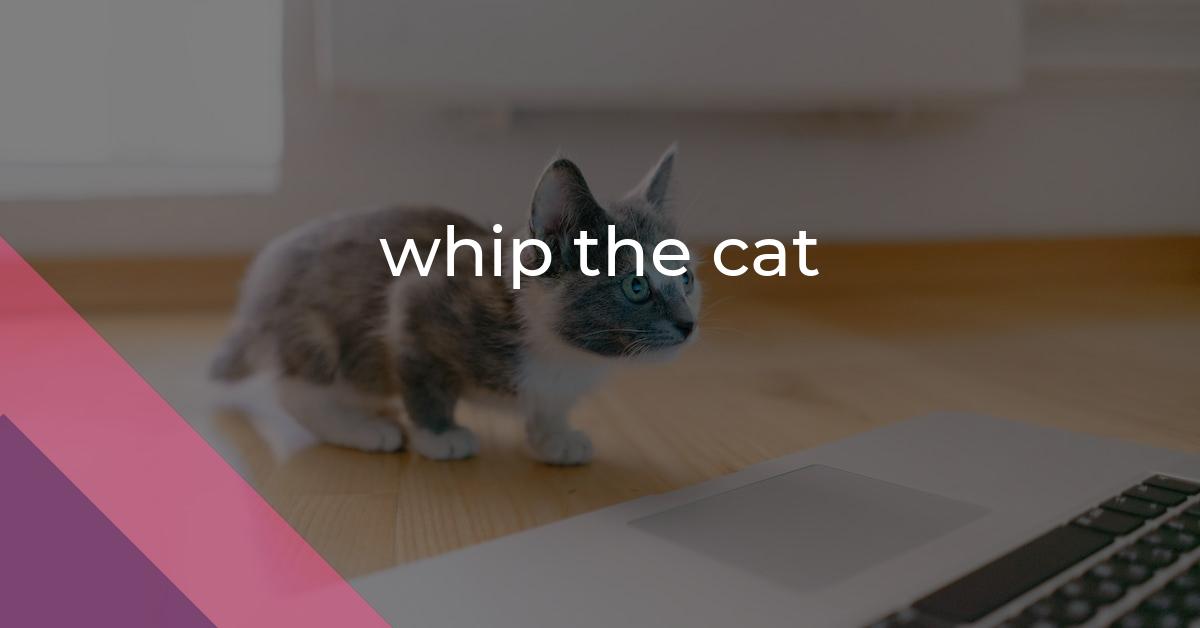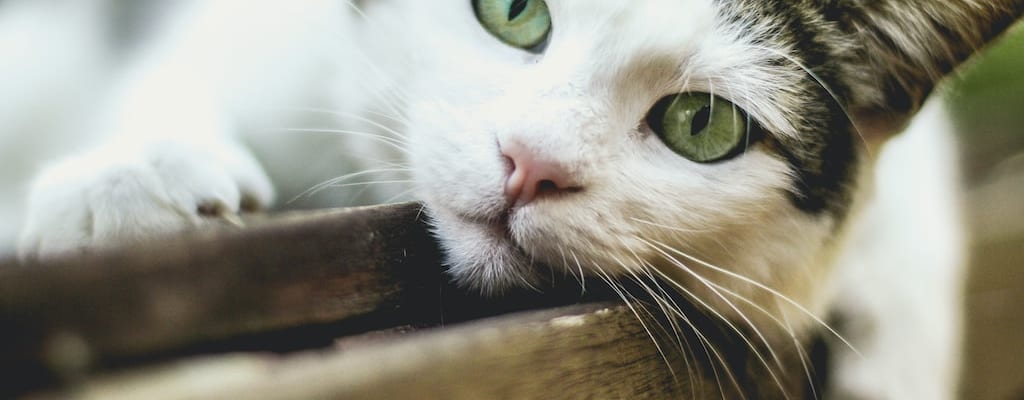whip the cat: Idiom Meaning and Origin
What does ‘whip the cat’ mean?
The idiom whip the cat refers to the act of taking out one's frustrations or anger on someone or something less powerful or innocent. It conveys the idea of venting negative emotions on a scapegoat or victim.

Idiom Explorer
The idiom "with a vengeance" means doing something with great intensity, force or enthusiasm.
The idiom *whistle in the dark* means to pretend to be brave or optimistic in a difficult or frightening situation, often to hide one's fear or uncertainty.
The idiom "whisk off" means to quickly and abruptly take someone or something away to another location, often with a sense of urgency or haste. It conveys the idea of rapidly moving or removing someone or something from one place to another.
The idiom "whisk away" means to quickly and unexpectedly take someone or something away from a place or situation.
The idiom "whip through" means to do something quickly and effortlessly, often completing a task or activity in a short amount of time.
The idiom "whip into shape" means to make someone or something more organized, efficient, or disciplined, typically through strict or forceful measures, in order to improve their performance or behavior.
The idiom "whip hand" means having control or advantage over a situation or person. It refers to being in a position of power or authority.
The idiom "wheel away" means to remove or take something away quickly, often using a wheel or wheeled vehicle. It implies a swift and efficient action of transportation or relocation.
Enigmatic Revelations
Whip the cat, \take it out on\ an idiomatic expression with a contentious and confusing history, has sparked intrigue among etymologists and language enthusiasts alike. The idiom, which seems to defy logic and conjure images of cruelty towards animals, has its roots in the early Renaissance period and has since undergone significant semantic shifts. Examining the historical context and various interpretations sheds light on the evolution and complexities of this peculiar phrase.
The origin of whip the cat is shrouded in ambiguity, and no definitive source has been identified. However, one prevailing theory suggests a connection to a medieval punishment method known as "cat-o'-nine-tails." This instrument, composed of multiple knotted lashes attached to a handle, was used to strike or flog individuals as a form of discipline or public humiliation. It is plausible that the idiom's depiction of whipping a cat may have derived from this harsh and brutal practice, albeit as a metaphorical representation rather than a literal act.
While the precise meaning of the idiom has varied over time, it generally conveys the notion of aimless or errant behavior, incompetence, or lack of direction. The earliest documented use of whip the cat, found in Thomas Nashe's play "Summer's Last Will and Testament" from 1600, presents the idea of toying with or wasting time. This concept aligns with the idiom's later shift to denote frivolous or futile actions, as evidenced in Samuel Johnson's dictionary entry from 1755:
"To whip the cat: to go about from one place to another in a heedless, thoughtless manner."
The idea of wasting time or engaging in frivolous actions is often related to the idiom "take it out on." When someone is feeling frustrated or angry, they may take their frustrations out on someone or something else. Similarly, the act of whipping the cat can be seen as a way to vent or release negative emotions onto a harmless object.
Johnson's definition highlights the negative connotations associated with the idiom, implying a sense of wastefulness or lack of purpose. Notably, this interpretation evolved further in the late 18th century to connote dishonest or deceitful behavior. This shift reflects a metaphorical transformation wherein whipping the cat becomes synonymous with deceiving or tricking someone, as seen in a quote from the 1781 play "The Register Office":
"You know my maxim, whip the cat, and scatter the kittens."
Here, the idiom implies not only a lack of integrity but also a deliberate and calculated attempt to mislead or deceive. The inclusion of "scatter the kittens," a phrase associated with causing mayhem or confusion, accentuates the idiom's negative undertones.
In modern usage, whip the cat has retained its pejorative implications, albeit with diminished frequency. Today, the idiom is less common and often confined to historical or literary contexts. However, it is crucial to note that different interpretations may still emerge, given its long and convoluted history. The ambiguity surrounding the exact origins and multiple semantic shifts allows for ongoing discussion and speculation among language enthusiasts.
When examining the idiom "tear a cat," which means to criticize or scold someone severely, there are similarities to be drawn with whip the cat. Both idioms involve the idea of inflicting harm, whether physical or emotional, on a feline creature. This connection further reinforces the negative connotations associated with whip the cat and the notion of engaging in destructive or harmful behavior.
Unraveling the complexities of whip the cat illuminates not only the idiom's evolution over time but also the intricacies of idiomatic expressions as a whole. Each facet of this enigmatic phrase links to a specific historical moment, cultural context, and semantic nuance, highlighting the power and elasticity of language. While the exact meaning may remain elusive, the ongoing exploration of whip the cat serves as a reminder of how language continually evolves, adapts, and intrigues.
In some ways, the idiom "whisk away" can be seen as the opposite of whip the cat. While whip the cat denotes aimless or frivolous behavior, whisk away suggests swift and purposeful movement. The act of whisking away implies efficiency and intent, contrasting with the idea of going about in a thoughtless manner. This contrast demonstrates the versatility and varied interpretations that idiomatic expressions can hold.
To further understand the idiom "whip hand," which means to exert control or have an advantage over someone, it is helpful to consider the empowering connotations associated with whip the cat. When someone has the "whip hand" in a situation, they are in a position of power and influence. This connection highlights the nuanced and multifaceted nature of idiomatic expressions and how they intertwine and build upon one another within a linguistic framework.
The idiom "open a can of whoop ass" is a colloquial and humorous expression that denotes an aggressive or confrontational approach to a situation. Although there is no direct semantic connection to whip the cat, the use of "whip" in both idioms creates a slight association. Both idioms involve the idea of unleashing or inflicting harm, whether physical or metaphorical. While the exact relationship may be tenuous, the presence of whipping as a common thread underscores the intricacies and interconnectedness of idiomatic expressions.
Example usage
Examples of how the idiom "whip the cat" can be used in a sentence:
- He was so frustrated with the project that he said he would rather whip the cat than continue working on it.
- After a long day at work, she decided to whip the cat at home and relax with a glass of wine.
- Although the CEO was unhappy with the company's performance, he knew that whipping the cat wouldn't solve the underlying issues.
More "Expression" idioms



